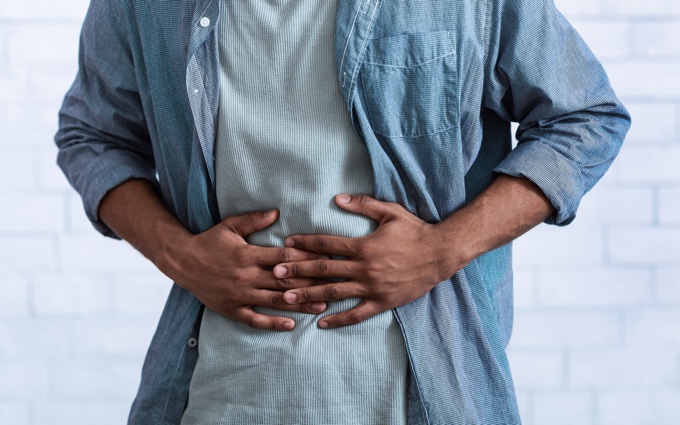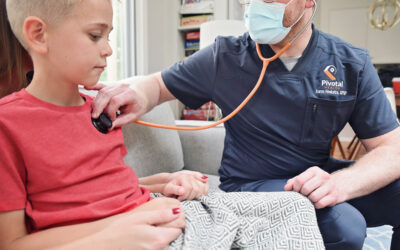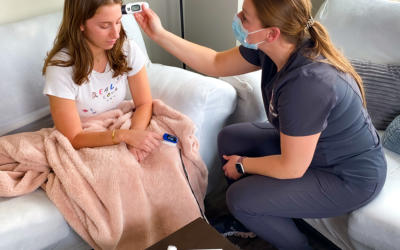Should I go to the emergency room for food poisoning?
According to CDC estimates, 1 in 6 Americans become ill from foodborne illness every year. Foodborne illness, commonly known as food poisoning, can be extremely unpleasant. Symptoms can come on suddenly and be debilitating. However, most cases of food poisoning are not serious and get better without medical treatment.
What are the symptoms of food poisoning?
Symptoms of food poisoning often start within hours after consuming contaminated food or water. However, in some cases they occur days or even weeks later. Symptoms include:
- Nausea
- Diarrhea, sometimes bloody
- Vomiting
- Fever
- Abdominal (belly) cramping and pain
What are the causes of food poisoning?
Foodborne illness is caused by eating contaminated food or water. Items can be contaminated at any point in the harvesting, production, or preparation process. You can contract food poisoning from a restaurant or food prepared in your own or someone else’s home. Raw produce, such as salads, presents a greater risk than cooked foods, because the heat from cooking destroys some organisms. Organisms that cause food poisoning include:
- Bacteria (such as salmonella and E. coli)
- Parasites (such as cryptosporidium)
- Viruses (like norovirus)
How can you treat food poisoning at home?
Symptoms usually resolve within 2 days. Follow these steps to manage your symptoms at home:
- Stop eating and drinking normally for several hours
- Suck on ice chips or take small sips of water to stay hydrated
You might also try non-caffeinated clear sodas, sports drinks, or pediatric electrolyte solutions
- Rest: Foodborne illness and dehydration can cause significant fatigue
- Avoid caffeine, alcohol, dairy products, nicotine, and spicy foods
- As you begin to feel better, resume normal consumption patterns gradually, starting with “bland” foods such as broth, crackers, or rice
Give your body a chance to recover and reset
When should you seek emergency or urgent care for food poisoning?
You should seek emergency or urgent care if:
- You have a fever higher than 101 degrees Fahrenheit
- You have blood in your diarrhea or vomit
- You are having difficulty breathing or swallowing
- You are experiencing blurred vision or other neurological symptoms (e.g. confusion, numbness/tingling in arms or legs, weakness on one side, speech problems)
- You have had consistent vomiting or diarrhea for 3 days or more
- You are severely dehydrated
(You have dry mouth, infrequent urination, light-headedness or extreme weakness)
- You are pregnant, elderly, under 5 years old, or have a chronic disease like diabetes or congestive heart failure
How will your ER or urgent care clinician treat food poisoning?
Depending on the length and severity of your symptoms and the findings of a physical exam, your provider may:
- Administer IV fluids: This is necessary in cases of severe dehydration
- Prescribe antibiotics or another medication: This is only done when the source of the illness is known to be bacterial, like listeria, or parasitic, like cryptosporidium.
How can you prevent food poisoning?
Take the following precautions to avoid food borne illness:
- Wash all produce thoroughly
- Do not eat raw or undercooked meat or poultry
- Cook foods to the correct internal temperature (use a food thermometer)
- Wash hands and disinfect surfaces that have come in contact with raw meat or poultry
- Do not eat raw or lightly cooked eggs
- Do not eat raw sprouts
- Keep cold foods cold and hot foods hot
- Refrigerate leftovers within 2 hours of cooking
- Only eat foods prepared by those who follow food safety guidelines
Fast, smart help from Pivotal Health for food poisoning
If you’re ill with suspected food poisoning, connect with Pivotal Health to discuss your potential treatment options based on your symptoms. Our experienced triage support and clinicians will help you determine if you need emergency care or can be seen in the comfort of your home, on your own schedule, by a licensed Pivotal Health provider.
Pivotal Health clinicians can assess your illness, administer IV fluids, prescribe medications, and create a treatment plan for you. All Pivotal Health clinician visits, including for food poisoning, include follow-up consultation to ensure you’re on the road to recovery.












